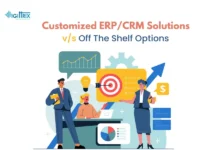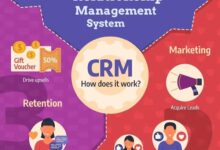Top Cloud-Based CRM Platforms: A Comprehensive Comparison And Analysis
Top Cloud-Based CRM Platforms offer a wide range of features and pricing options, catering to businesses of all sizes. Let’s delve into a detailed comparison of the top three platforms to help you make an informed decision.
Overview of Top Cloud-Based CRM Platforms
In today’s competitive business landscape, choosing the right CRM platform is crucial for managing customer relationships effectively. Three of the top cloud-based CRM platforms in the market are Salesforce, HubSpot, and Zoho CRM. Let’s compare these platforms based on pricing, features, customer reviews, integrations with popular business tools, and scalability options.
Pricing, Features, and Customer Reviews
- Salesforce: Known for its robust features and customization options, Salesforce offers various pricing tiers to suit different business needs. However, it is considered more expensive compared to other CRM platforms. Customer reviews often highlight its powerful analytics and automation capabilities.
- HubSpot: HubSpot is popular for its user-friendly interface and comprehensive marketing tools. It offers a free version with limited features and affordable pricing plans for small to medium-sized businesses. Customer reviews praise its ease of use and extensive integrations.
- Zoho CRM: Zoho CRM is known for its affordability and flexibility. It offers a range of features at competitive prices, making it a popular choice for small businesses. Customer reviews often mention its intuitive interface and excellent customer support.
Integration with popular business tools is essential for seamless operations. Salesforce integrates with Gmail, Outlook, and Slack through plugins and connectors, allowing users to access CRM data directly from these platforms. HubSpot offers native integrations with Gmail and Outlook, as well as a Slack integration for better communication. Zoho CRM provides seamless integration with Gmail, Outlook, and Slack, enabling users to synchronize emails, contacts, and tasks effortlessly.
Scalability Options
- Salesforce: With its enterprise-level features, Salesforce caters to large businesses looking for advanced CRM capabilities and scalability. It offers customizations to meet the specific needs of large organizations.
- HubSpot: HubSpot’s scalability options are designed to grow with businesses of all sizes. It provides tools for small businesses to enterprise-level companies, ensuring flexibility and adaptability.
- Zoho CRM: Zoho CRM offers scalability for businesses of all sizes, with features that can be tailored to meet the evolving needs of small, medium, and large enterprises. It provides a smooth transition as businesses expand and require more advanced CRM functionalities.
Salesforce CRM
Salesforce CRM is a cloud-based customer relationship management platform that offers a wide range of features to help businesses manage their customer interactions more effectively.
Key Features of Salesforce CRM
- Lead Management: Salesforce CRM allows businesses to track and manage leads through the sales pipeline, ensuring that no potential opportunities are missed.
- Contact Management: Users can store and organize customer contact information, interactions, and communication history in one central location.
- Opportunity Management: The platform enables users to track sales opportunities, forecast revenue, and prioritize deals based on their likelihood of closing.
- Customizable Reports and Dashboards: Salesforce CRM provides robust reporting and analytics tools to help businesses gain insights into their sales performance and customer data.
Industries Benefiting from Salesforce CRM
- Retail: Retail businesses can use Salesforce CRM to track customer preferences, streamline sales processes, and personalize marketing campaigns.
- Financial Services: Companies in the financial services sector can leverage Salesforce CRM for wealth management, client onboarding, and regulatory compliance.
- Healthcare: Healthcare organizations can use Salesforce CRM to improve patient engagement, manage referrals, and track medical records.
Integration with Other Business Tools
Salesforce CRM offers seamless integration with a wide range of business tools and software, including marketing automation platforms, email marketing services, and accounting software. This allows businesses to streamline their operations and improve efficiency.
Setting Up a New Salesforce CRM Account
- Go to the Salesforce website and click on the “Start My Free Trial” button.
- Fill in your details to create a new account, including your name, email address, and company information.
- Follow the on-screen instructions to set up your account and customize it according to your business needs.
Customizing Salesforce CRM for Specific Business Needs
- Define your sales process and customize lead statuses, sales stages, and opportunity fields to align with your business requirements.
- Create custom fields, workflows, and automation rules to tailor Salesforce CRM to your unique business processes.
- Configure reports and dashboards to track key performance indicators and monitor sales trends in real-time.
Salesforce CRM Pricing Plans
- Essentials: Starting at $25 per user per month, Essentials offers basic CRM functionality for small businesses.
- Professional: Priced at $75 per user per month, Professional includes advanced features for growing businesses.
- Enterprise: At $150 per user per month, Enterprise is designed for larger organizations with complex CRM needs.
Comparison with Other CRM Platforms
- Salesforce CRM vs. HubSpot CRM: While Salesforce offers a robust set of features and customization options, HubSpot CRM is known for its user-friendly interface and integrated marketing tools.
- Salesforce CRM vs. Zoho CRM: Zoho CRM provides a cost-effective solution with similar features to Salesforce, but Salesforce is often preferred for its scalability and enterprise-level capabilities.
HubSpot CRM
HubSpot CRM is a popular cloud-based customer relationship management platform known for its user-friendly interface and robust features tailored to help businesses manage their sales, marketing, and customer service processes effectively.
Unique Features of HubSpot CRM
- Integration with HubSpot Marketing Hub for seamless marketing automation.
- Customizable reporting and analytics dashboard for real-time insights.
- Email tracking and templates to streamline communication with prospects and customers.
Use Cases of HubSpot CRM
- Small businesses looking to consolidate their sales, marketing, and customer service efforts in one platform.
- Companies focusing on inbound marketing strategies and lead generation.
Pricing Plans Comparison
- HubSpot CRM offers a free version with limited features, as well as paid plans starting at $45/month per user.
- Compared to Salesforce CRM and Zoho CRM, HubSpot CRM’s pricing is more budget-friendly for small to medium-sized businesses.
Key Features Comparison
| Features | HubSpot CRM | Salesforce CRM | Zoho CRM |
|---|---|---|---|
| Marketing Automation | ✔️ | ✔️ | ✔️ |
| Customizable Reporting | ✔️ | ✔️ | ✔️ |
| Email Tracking | ✔️ | ✔️ | ✔️ |
Setting Up a Basic Sales Pipeline in HubSpot CRM
- Create deal stages such as “Prospecting,” “Qualification,” “Proposal,” and “Closed-Won.”
- Add properties like deal amount, close date, and probability to each deal.
- Assign deals to specific sales representatives for tracking and follow-up.
Zoho CRM
Zoho CRM is a cloud-based customer relationship management platform that offers a wide range of modules and functionalities to help businesses manage their customer interactions effectively.
Various Modules and Functionalities Offered by Zoho CRM
- Zoho CRM provides modules for sales force automation, marketing automation, customer support, inventory management, and analytics.
- Users can track leads, contacts, deals, and accounts in a centralized database, allowing for easy access to important customer information.
- Automation features streamline workflows, such as email marketing campaigns, lead scoring, and sales forecasting.
- Integration with other Zoho applications and third-party tools enhances the overall functionality and customization options.
How Zoho CRM Caters to Small and Medium-Sized Businesses
- Zoho CRM offers affordable pricing plans that are suitable for small and medium-sized businesses with limited budgets.
- The platform is easy to set up and use, with intuitive interfaces and customizable layouts to meet the specific needs of different businesses.
- Zoho CRM provides scalability, allowing businesses to start with basic features and expand as their needs grow.
- Customer support and training resources are available to help businesses make the most of the platform and optimize their CRM processes.
Customization Options Available in Zoho CRM
- Zoho CRM allows users to customize fields, layouts, and workflows to match their unique business requirements.
- Users can create custom modules, set up automation rules, and define user permissions to tailor the CRM system to their specific needs.
- Integration with third-party apps and APIs enables additional customization and functionality enhancements for different business processes.
- Zoho CRM’s flexibility and adaptability make it a versatile solution for businesses across various industries and sizes.
Microsoft Dynamics 365 CRM
Microsoft Dynamics 365 CRM is a cloud-based CRM platform offered by Microsoft that provides a comprehensive suite of customer relationship management tools to help businesses manage their customer interactions effectively.
Scalability and Flexibility
Microsoft Dynamics 365 CRM offers high scalability and flexibility, allowing businesses to customize the platform to meet their specific needs. The platform can easily accommodate the growth of a business and adapt to changing requirements without compromising performance.
Success Stories
Many businesses have implemented Microsoft Dynamics 365 CRM and have experienced significant improvements in their customer relationships and overall productivity. For example, a manufacturing company reported a 20% increase in sales after implementing the CRM system and streamlining their sales processes.
Integration with Microsoft Office
Microsoft Dynamics 365 CRM seamlessly integrates with Microsoft Office applications such as Outlook, Excel, and Word, allowing users to access CRM data directly from familiar tools. This integration enhances productivity and ensures a seamless workflow for users.
Pricing Plans
Microsoft Dynamics 365 CRM offers various pricing plans to cater to different business needs. The plans range from basic essentials for small businesses to premium plans with advanced features for larger enterprises. Businesses can choose a plan that aligns with their budget and requirements.
Setting up a Basic CRM System
To set up a basic CRM system using Microsoft Dynamics 365 CRM, follow these steps:
- Sign up for a Microsoft Dynamics 365 CRM account.
- Create custom entities to store customer data.
- Configure workflows and automation processes to streamline tasks.
- Integrate with Microsoft Office applications for seamless data access.
- Train users on how to use the CRM system effectively.
Pipedrive
Pipedrive is a popular cloud-based CRM platform known for its user-friendly interface and efficient navigation, making it a valuable tool for sales teams. Let’s delve into the features and functionalities that make Pipedrive a top choice for managing sales processes.
User-Friendly Interface and Navigation
- Pipedrive offers a clean and intuitive interface that allows users to easily navigate through different modules and features.
- The dashboard provides a clear overview of ongoing deals, tasks, and contacts, making it simple to stay organized and focused on sales activities.
Streamlining Sales Processes
- With Pipedrive, sales processes such as lead management, deal tracking, and follow-ups can be streamlined and automated, improving overall efficiency and productivity.
- The platform’s visual pipeline view enables users to visualize the sales process stages and identify bottlenecks or areas that require attention.
Reporting and Analytics Capabilities
- Pipedrive offers robust reporting and analytics tools that allow users to track key sales metrics, monitor performance, and make data-driven decisions.
- Customizable reports and dashboards provide valuable insights into sales activities, conversion rates, and revenue forecasts.
Setting Up Custom Pipelines
- To align Pipedrive with your specific sales process, you can create custom pipelines with unique stages, activities, and automation rules.
- A step-by-step guide for setting up custom pipelines in Pipedrive can help optimize the platform to meet your team’s sales workflow and requirements.
Integration with Other Tools
- Pipedrive offers seamless integration with various third-party tools and platforms, such as email marketing software, customer support systems, and accounting solutions.
- Integrating Pipedrive with other tools enhances workflow management, data synchronization, and overall collaboration within the sales team.
Automation Features for Productivity
- Utilizing Pipedrive’s automation features, such as email templates, workflow automations, and task reminders, can save time and streamline repetitive sales tasks.
- Automation in Pipedrive helps sales teams focus on high-value activities, improve response times, and increase overall productivity.
Freshworks CRM
Freshworks CRM is a cloud-based customer relationship management platform that offers a range of automation features and customer service enhancements to help businesses streamline their processes and improve customer interactions.
Automation Features in Freshworks CRM
- Freshworks CRM provides automation features such as lead scoring, email automation, and workflow automation to help businesses save time and increase efficiency in their sales and marketing processes.
- The platform also offers AI-powered chatbots that can assist customers with common queries and provide personalized recommendations based on their interaction history.
Customer Service Enhancements in Freshworks CRM
- Freshworks CRM offers a unified inbox that consolidates customer queries from multiple channels, allowing businesses to respond to customer inquiries quickly and efficiently.
- The platform also provides self-service options such as knowledge bases and FAQs to empower customers to find answers to their questions independently.
Comparison of Customer Support Options in Freshworks CRM
- Compared to other platforms, Freshworks CRM stands out for its 24/7 customer support through multiple channels including email, phone, and live chat, ensuring that businesses can receive assistance whenever they need it.
- In addition, Freshworks CRM offers a robust community forum where users can share best practices, tips, and troubleshoot issues together, enhancing the overall customer support experience.
Oracle CRM
Oracle CRM offers industry-specific solutions tailored to various sectors such as financial services, healthcare, communications, and more. These solutions are designed to address the unique needs and challenges of each industry, providing specialized tools and features to enhance customer relationships and drive business growth.
Industry-Specific Solutions
Oracle CRM provides a range of industry-specific solutions, including Oracle Financial Services CRM, Oracle Healthcare CRM, Oracle Communications CRM, and more. These solutions are customized to meet the specific requirements of each sector, offering features such as compliance management, patient relationship management, customer service automation, and industry-specific analytics.
- Oracle Financial Services CRM: Designed for banks, insurance companies, and other financial institutions, this solution helps streamline customer interactions, improve cross-selling opportunities, and enhance customer loyalty.
- Oracle Healthcare CRM: Tailored for healthcare providers, this solution enables better patient engagement, personalized care delivery, and data-driven decision-making to improve overall patient outcomes.
- Oracle Communications CRM: Geared towards telecom companies, this solution helps manage customer interactions across multiple channels, drive customer acquisition and retention, and enhance operational efficiency.
Security Measures
Oracle CRM implements robust security measures to protect customer data and ensure data privacy. These measures include encryption of data at rest and in transit, role-based access control, multi-factor authentication, regular security audits, and compliance with industry standards and regulations such as GDPR and HIPAA.
Oracle CRM prioritizes the security and confidentiality of customer data, providing a secure environment for businesses to manage their customer relationships.
Omnichannel Customer Engagement
Oracle CRM supports omnichannel customer engagement by enabling seamless interactions across multiple channels such as email, phone, chat, social media, and in-person interactions. This allows businesses to deliver a consistent and personalized experience to customers regardless of the channel they choose, improving customer satisfaction and loyalty.
Customization and Integration Options
Customizing and integrating cloud-based CRM platforms are crucial for businesses to maximize the effectiveness of their customer relationship management processes. Here are some tips and best practices for customizing and integrating CRM platforms with other business applications.
Customization Tips:
- Understand your unique business needs and processes before customizing the CRM platform.
- Utilize the customization features provided by the CRM platform to tailor it to your specific requirements.
- Train your team on how to use the customized features effectively to ensure optimal usage and results.
- Regularly review and update the customization to adapt to changing business needs and industry trends.
Importance of Integration:
- Seamless integration between CRM platforms and other business applications ensures a cohesive flow of data and information across the organization.
- Integration eliminates manual data entry, reduces errors, and improves efficiency in decision-making processes.
- Having a centralized view of customer data from different sources allows for a 360-degree view of the customer journey.
Best Practices for Integrating with Marketing Automation Tools:
- Ensure that the CRM platform integrates smoothly with your existing marketing automation tools to streamline lead generation and nurturing processes.
- Automate the transfer of data between the CRM platform and marketing automation tools to improve campaign targeting and personalization.
- Track and analyze customer interactions and behaviors across both platforms to optimize marketing strategies and improve customer engagement.
Mobile Accessibility and User Experience
Mobile accessibility and user experience play a crucial role in the efficiency and effectiveness of cloud-based CRM platforms, especially for remote work and field sales teams.
Salesforce CRM
- Salesforce offers a responsive mobile app that allows users to access key CRM functionalities on the go.
- Features like real-time notifications, mobile dashboards, and easy data entry enhance the user experience on mobile devices.
- Mobile accessibility in Salesforce CRM enables remote workers and field sales teams to stay connected and productive while on the move.
HubSpot CRM
- HubSpot CRM provides a mobile app with a clean and intuitive interface for easy navigation.
- Users can manage contacts, track deals, and access analytics seamlessly on their mobile devices.
- The mobile-friendly design of HubSpot CRM ensures a smooth user experience for professionals working outside the office.
Zoho CRM
- Zoho CRM offers a mobile app that allows users to access customer information, manage tasks, and track sales activities on the go.
- Features like offline access, push notifications, and mobile check-ins enhance user productivity and engagement.
- Mobile accessibility in Zoho CRM empowers remote teams and field sales representatives to make informed decisions and collaborate effectively.
Data Security and Compliance
Data security and compliance are crucial aspects when it comes to choosing a cloud-based CRM platform. These platforms implement various measures to ensure the protection of sensitive customer information and comply with data security regulations.
Measures for Data Security
- Encryption: Cloud-based CRM platforms use encryption techniques to safeguard data during storage and transmission, ensuring that unauthorized users cannot access sensitive information.
- Access Controls: These platforms have robust access control mechanisms in place to regulate who can view, edit, or delete data, reducing the risk of unauthorized access.
Importance of Data Security Certifications
- ISO 27001: This certification demonstrates that a CRM platform adheres to international standards for information security management systems, ensuring that data is protected and secure.
- GDPR Compliance: Compliance with the General Data Protection Regulation (GDPR) ensures that customer data is handled in a transparent and lawful manner, giving customers greater control over their personal information.
Customer Support and Training
Customer support and training play a crucial role in the successful implementation and utilization of cloud-based CRM platforms. Effective support ensures that users can maximize the features of the CRM system and achieve a higher return on investment.
Customer Support Options
- Most top cloud-based CRM platforms offer various customer support options, including email support, phone support, live chat, and self-service resources such as knowledge bases and community forums.
- Some platforms also provide dedicated customer success managers for personalized assistance and guidance.
- Response times and availability of support may vary depending on the level of subscription or service agreement.
Training Resources
- CRM platforms typically offer onboarding resources such as video tutorials, user guides, webinars, and virtual training sessions to help new users familiarize themselves with the system.
- Advanced training modules may be available for users looking to deepen their understanding of the platform’s capabilities and features.
- Some platforms partner with third-party training providers to offer specialized training programs for specific industries or use cases.
Role of Customer Support in ROI
- Effective customer support can help users troubleshoot issues quickly, leading to increased productivity and user satisfaction.
- Timely support can prevent downtime and ensure that users make the most of the CRM platform’s features, resulting in a higher ROI for the organization.
- Customer support teams can also provide valuable feedback to developers for continuous improvement of the CRM platform.
Comparison of Customer Support Features
| CRM Platform | Customer Support Features |
|---|---|
| Salesforce CRM | 24/7 phone support, online help center, community forums |
| HubSpot CRM | Email and live chat support, knowledge base, HubSpot Academy training resources |
| Zoho CRM | Phone and email support, user guides, webinars, Zoho University training programs |
Accessing Customer Support Services in Salesforce CRM
To access customer support in Salesforce CRM:
- Log in to your Salesforce account.
- Click on the “Help & Training” link in the top right corner.
- Choose the support option you need, such as contacting support, browsing help articles, or joining the community forums.
- Follow the instructions provided to get the assistance you require.
Training Manual for New Users
New users of a CRM platform can refer to the following training manual to get started:
- Overview of CRM features and functionalities
- Creating and managing contacts, leads, and opportunities
- Customizing dashboards and reports
- Integrating with other business tools
- Tips for maximizing productivity and efficiency
Impact of Effective Support on User Adoption
Effective customer support significantly influences user adoption rates of CRM platforms by:
- Building user confidence and trust in the system
- Addressing user concerns and queries promptly
- Providing ongoing guidance for utilizing advanced features
- Ensuring a positive user experience and increasing overall satisfaction
Case Study: Importance of Ongoing Training and Support
In a case study of XYZ Company, ongoing training and support led to:
- Increased user engagement and adoption of the CRM platform
- Streamlined processes and improved data accuracy
- Higher ROI through enhanced productivity and sales performance
Future Trends in Cloud-Based CRM
The landscape of cloud-based CRM is constantly evolving, driven by technological advancements and changing customer expectations. Let’s explore some key trends shaping the future of CRM platforms.
Impact of AI and Machine Learning
AI and machine learning are revolutionizing the way businesses interact with their customers. By leveraging these technologies, CRM platforms can analyze vast amounts of data to predict customer behavior, personalize interactions, and automate routine tasks. For example, AI-powered chatbots can provide instant support to customers, enhancing their overall experience.
Adaptation to Changing Customer Expectations
Cloud-based CRM platforms are adapting to meet the dynamic needs of customers. They are increasingly focusing on providing omnichannel support, seamless integration with other business tools, and real-time data analytics. This ensures that businesses can deliver personalized experiences and build stronger relationships with their customers.
Role of Data Analytics in CRM Strategies
Data analytics play a crucial role in optimizing CRM strategies. By analyzing customer data, businesses can gain valuable insights into their preferences, behaviors, and pain points. This information enables them to tailor their offerings, marketing campaigns, and customer interactions to meet individual needs effectively.
Implementation of Personalized Customer Experiences
Successful implementation of personalized customer experiences through cloud-based CRM systems involves leveraging customer data to create targeted marketing campaigns, personalized recommendations, and proactive customer support. This customization helps businesses stand out in a competitive market and build long-lasting relationships with their customers.
Scalability and Flexibility of CRM Solutions
Cloud-based CRM solutions offer scalability and flexibility that cater to businesses of all sizes. Whether a small startup or a large enterprise, organizations can easily scale their CRM systems to accommodate growth and changing needs. This adaptability ensures that businesses can stay agile and responsive in a rapidly evolving market.
Enhanced Data Security Measures
Data security is a top priority for cloud-based CRM systems. Providers are continually enhancing security measures to protect sensitive customer information from cyber threats and data breaches. Encryption, multi-factor authentication, and regular security audits are some of the measures implemented to safeguard data and ensure compliance with data protection regulations.
Closing Summary
In conclusion, the realm of cloud-based CRM platforms is vast and dynamic, with each offering unique advantages for businesses. By understanding the key differences and features of these platforms, you can choose the one that best aligns with your business needs.




